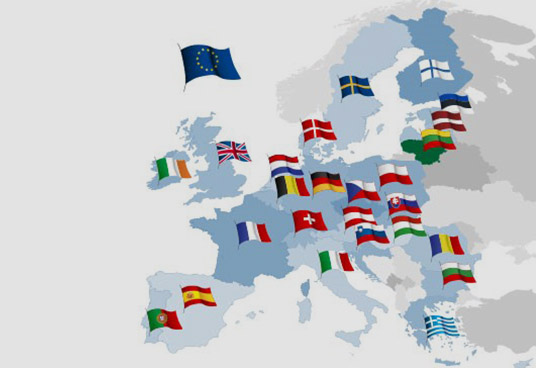Licensing of banks, credit institutions, payment and e-money institutions, fintech companies, insurance companies, investment funds and investment management companies for the purpose of providing services in single European market.
Common market and Single Euro Payments Area (SEPA)
Finance Institutions that are registered in Lithuania enjoy the advantages of the EU Common Market and Single Euro Payments Area (SEPA).
SEPA – more than 500 million citizens, over 20 million businesses and European public authorities making and receiving payments in EURO at a low cost, under the same basic conditions, rights and obligations, regardless of their location in Europe. SEPA allows arranging electronic credit transfers and direct debits in all of EURO area at a low cost just as easy as at home. Payment and e-money institutions that are registered in Lithuania access payment infrastructure in SEPA having possibility to get their own national sorting codes for IBAN accounts for their clients. The Bank of Lithuania creates an infrastructure for instant payments that according to European Instant Payments Initiative will guarantee pan-European reach.
Why Lithuanian finance institution?
Finance Institutions around the world are subject to higher incorporation and stringent regulation requirements with the additional requirements related to the organizational structure, top management, internal control and risk management systems.
Finance Institution licenced in Lithuania opens comprehensive business opportunities to act and provide services in the single EU market of the payment services. Payment Institution registered in Lithuania provides significant competitive advantage and opens single European financial market at significantly lower incorporation and operational costs.
Finance Institutions registered in Lithuania provide services in the single market of all EU member states without any restrictions.
Lithuania facts and figures
Member state of the European Union (EU), Currency – EURO (EUR).
Population – 3 million, Dominant languages – Lithuanian, English, Russian, Polish.
13th freest economy in the World / Heritage Foundation 2016 Index of Economic Freedom http://www.heritage.org/index/ranking
Starting business rank Ranked 8th globally / World Bank Doing Business Report http://www.doingbusiness.org/data/exploreeconomies/lithuania/
Labour costs 4 times lower than EU average / Eurostat, 2014, together with the 2nd fastest productivity growth in the EU 2010-2014 / Eurostat 2014.
Fastest and one of the most affordable fixed broadband services in the EU / Global Information Technology Report, 2015.
Fastest public Wi-Fi in the world / Rotten Wifi tests, 2014.
Capital city – Vilnius
Population – 540 000.
3rd place in European mid-sized cities of the Future 2016/17 / fDi Intelligence, The Financial Times Ltd.
Quoted alongside Copenhagen and Barcelona as a hip and well managed place to live / New York Times.
Ranked the city as one of the 5 least expensive cities in the EU / 2015 Mercer Cost of Living Index.
Meanwhile, as UK and London finance institutions are suffering from Brexit, Lithuania and primarily its capital Vilnius are becoming a new hub for the finance institutions focused on international financial market. Favourable regulatory and tax environment, excellent infrastructure, fastest internet and quality talent pool makes Vilnius attractive for large international financial technologies (fintech) companies setting up their offices and service centre’s in Vilnius already.
In 2009 UK giant Barclays Bank founded Barclays Technologies Centre Lithuania in Vilnius, offering IT and other services to Barclays businesses across the world.
Nasdaq – the world’s largest provider of securities trading technology has also established Nasdaq technology and business support competence centre in Vilnius. This centre is providing solutions for Nasdaq clients in global financial markets.
SEB and its rival Swedbank – two leading Nordic financial services groups have established service and IT centres in Vilnius, providing business support services to all the group companies all over the world.
Well-developed infrastructure and favourable regulation also attracts number of small and min-sized international fintech and internet payment companies, providing tools for online payments, internet shops and Bitcoins.
Regulation
The Bank of Lithuania combines the central bank and the financial supervisory authority functions in Lithuania. The Bank of Lithuania comes out from the watchdog’s role, accepts innovative ideas proposed by the market participants, and simplifies regulatory procedures avoiding unnecessary paperwork. Getting payment or e-money institution licence ready and be able to provide services all around EU within 3 months is a real in Lithuania. In most of the jurisdictions, such process usually takes around 12 months. Such regulatory behaviour and significantly lower finance institution incorporation, licensing and maintenance costs is what makes Lithuania preferred jurisdiction for the finance business people from around the world.
This article is published as well here.

 Newsletter Subscription
Newsletter Subscription